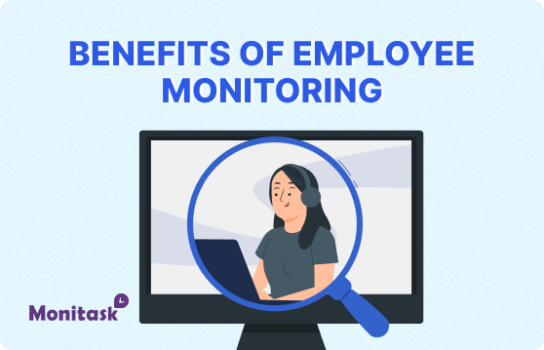USERRA
Understanding USERRA: Protecting the Employment Rights of Service Members
The Uniformed Services Employment and Reemployment Rights Act, commonly known as USERRA, is a crucial piece of legislation that safeguards the employment rights of individuals who serve in the military. Enacted in 1994, USERRA provides comprehensive protection for service members, ensuring they can return to their civilian jobs after completing their military service without facing discrimination or loss of benefits.
USERRA applies to all employers in the United States, regardless of size, and covers a wide range of uniformed services, including the Army, Navy, Air Force, Marines, Coast Guard, and their respective reserve components, as well as the National Guard and Public Health Service Commissioned Corps.
Key Provisions of USERRA
USERRA encompasses several vital provisions designed to protect service members' employment rights. These provisions address various aspects of the employment relationship, from hiring practices to reemployment rights and benefits continuation.
1. Non-Discrimination and Retaliation Protection
One of the fundamental aspects of USERRA is its prohibition of discrimination based on an individual's past, present, or future military service. Employers are forbidden from denying initial employment, reemployment, retention, promotion, or any other benefit of employment due to a person's military status or obligations.
Additionally, USERRA protects individuals from retaliation for exercising their rights under the act or assisting others in doing so. This provision ensures that service members can freely assert their rights without fear of negative consequences in their civilian employment.
2. Reemployment Rights
Perhaps the most significant aspect of USERRA is the guarantee of reemployment rights for service members returning from military duty. Under USERRA, individuals who leave their civilian jobs to perform military service have the right to be promptly reemployed in their previous positions or in positions of similar seniority, status, and pay.
To be eligible for reemployment rights under USERRA, service members must meet certain criteria:
- They must have left their civilian job for the purpose of performing military service
- They must have given advance notice to their employer about their military service (except when impossible or unreasonable)
- The cumulative length of their absense(s) due to military service must not exceed five years (with some exceptions)
- They must have been released from service under honorable conditions
- They must have reported back to work or applied for reemployment within the timeframes specified by USERRA
The timeframe for reporting back to work or applying for reemployment varies depending on the length of military service:
- For service of less than 31 days: The individual must return to work on the next regularly scheduled workday
- For service of 31 to 180 days: The individual must apply for reemployment within 14 days of completing service
- For service of more than 180 days: The individual must apply for reemployment within 90 days of completing service
3. "Escalator" Principle
USERRA incorporates the "escalator" principle, which requires employers to reemploy returning service members in the position they would have attained had they remained continuously employed, rather than simply reinstating them to their pre-service position. This principle ensures that service members do not lose out on career advancement opportunities due to their military service.
For example, if an employee would have been eligible for a promotion based on seniority or job performance during their military service, they should be considered for that promotion upon their return. The escalator principle applies not only to job position but also to pay, benefits, and other employment terms and conditions.
4. Continuation of Benefits
USERRA provides for the continuation of certain employment benefits during military service. Service members have the right to continue their employer-based health insurance coverage for up to 24 months while on military duty. If they choose not to continue coverage, they have the right to be reinstated in the employer's health plan upon reemployment without any waiting periods or exclusions.
Furthermore, USERRA ensures that service members' pension plans are protected. The time spent in military service is treated as continuous employment for pension purposes, and employers are required to make any contributions to the pension plan that would have been made if the employee had not been absent due to military service.
Employer Obligations Under USERRA
USERRA places several obligations on employers to ensure compliance with the act's provisions and to protect the rights of service members. Understanding these obligations is crucial for HR professionals and employers to avoid potential violations and legal issues.
1. Providing Notice of USERRA Rights
Employers are required to provide notice to employees of their rights under USERRA. This can be done by posting a notice of USERRA rights in a location where employee notices are customarily placed. The Department of Labor provides a poster that employers can use to fulfill this requirement.
2. Prompt Reemployment
Upon receiving an application for reemployment from a returning service member, employers must act promptly to reinstate the individual. The law generally requires reemployment to occur within two weeks of the application, although this may vary depending on the circumstances.
3. Reasonable Accommodations and Retraining
If a returning service member is no longer qualified for their previous position due to a service-connected disability, the employer must make reasonable efforts to accommodate the disability. This may include providing training or retraining to help the individual become qualified for the position.
Additionally, even if a returning service member does not have a disability but is no longer qualified for their previous position due to missed training or certifications, the employer must make reasonable efforts to help the employee become qualified, such as providing necessary training.
4. Protection Against Discharge
USERRA provides additional protection against discharge for reemployed service members. If the period of military service was for more than 30 days but less than 181 days, the individual cannot be discharged without cause for six months after reemployment. For service of 181 days or more, this protection extends to one year after reemployment.
Challenges in Implementing USERRA
While USERRA provides crucial protections for service members, its implementation can present challenges for employers, particularly in certain situations:
1. Long-Term Absences
For small businesses or specialized positions, accommodating long-term absences can be particularly challenging. Employers may need to hire temporary replacements or redistribute workloads, which can be costly and disruptive.
2. Applying the "Escalator" Principle
Determining the appropriate position and compensation for a returning service member under the escalator principle can be complex, especially if significant changes have occurred in the organization during the individual's absence.
3. Reintegration and Training
Reintegrating service members who have been absent for extended periods may require significant training and support, particularly if job requirements or technologies have changed.
4. Balancing USERRA with Other Laws
Employers must navigate the interplay between USERRA and other employment laws, such as the Americans with Disabilities Act (ADA) and the Family and Medical Leave Act (FMLA), which can sometimes create complex compliance scenarios.
Best Practices for USERRA Compliance
To ensure compliance with USERRA and support service members in the workforce, employers and HR professionals should consider implementing the following best practices:
1. Develop Clear Policies and Procedures
Create comprehensive, written policies outlining the company's procedures for handling military leave requests, reemployment applications, and other USERRA-related matters. These policies should be regularly reviewed and updated to ensure ongoing compliance.
2. Provide Training for Managers and HR Staff
Conduct regular training sessions for managers and HR staff on USERRA requirements and the company's related policies. This helps ensure that those responsible for implementing USERRA understand their obligations and can handle situations appropriately.
3. Maintain Open Communication
Encourage open communication with employees who are service members. Maintain contact during their military service when possible, and be proactive in discussing reemployment plans as their return approaches.
4. Document Everything
Maintain thorough records of all communications, decisions, and actions related to employees' military service and reemployment. This documentation can be crucial in demonstrating compliance in case of any disputes or investigations.
5. Be Flexible and Supportive
Adopt a flexible and supportive approach when dealing with service members' needs. This may include being understanding about last-minute deployment notices or providing additional support during the reintegration process.
6. Seek Legal Counsel When Necessary
In complex situations or when unsure about USERRA requirements, don't hesitate to seek advice from legal counsel specializing in employment law.
The Future of USERRA
As the nature of military service and the workplace continues to evolve, USERRA may face new challenges and potential amendments in the future. Some areas that may see development include:
1. Addressing Remote Work
With the rise of remote work, questions may arise about how USERRA applies to employees who work from home or in flexible arrangements.
2. Expanding Coverage
There may be discussions about expanding USERRA's coverage to include other forms of national service or to provide additional protections for military families.
3. Enhancing Enforcement
Future amendments might focus on strengthening enforcement mechanisms or increasing penalties for non-compliance to ensure better protection for service members.
Conclusion
USERRA plays a vital role in protecting the employment rights of those who serve our country. By ensuring that service members can return to their civilian careers without disadvantage, USERRA not only supports individual service members but also contributes to the overall strength and readiness of our military forces.
For HR professionals and employers, understanding and properly implementing USERRA is not just a legal obligation but a moral imperative. By supporting service members in their civilian employment, organizations can benefit from the unique skills, experiences, and perspectives that these individuals bring to the workplace.
As we move forward, it's crucial for all stakeholders – employers, HR professionals, lawmakers, and service members themselves – to stay informed about USERRA and engage in ongoing discussions about how to best support and protect the employment rights of those who serve. By doing so, we can ensure that USERRA continues to fulfill its important mission in the years to come.


